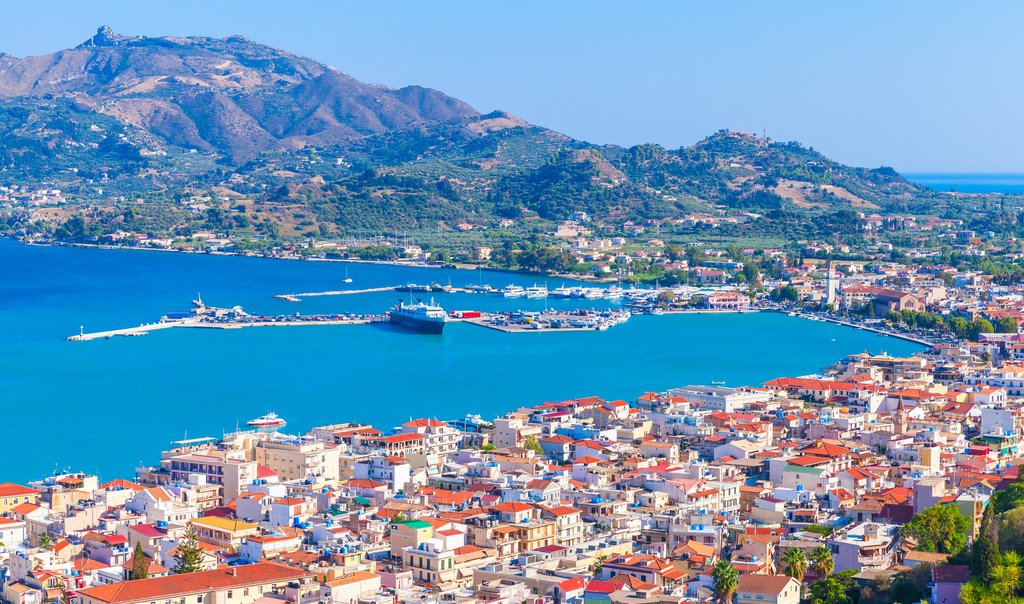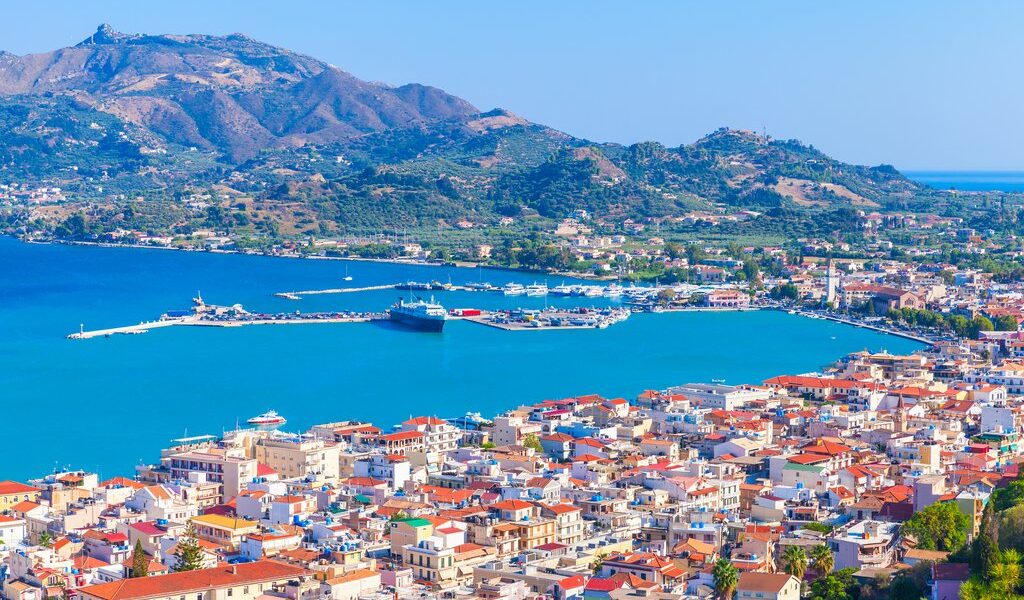
The Greek islands offer an irresistible combination of white-sand beaches, mountain scenery, and ancient history. If warm weather is important to you, summer is indisputably the best time to visit, when you’ll most likely have pleasant temperatures for the beach. However, the islands can get busy in summer—fall and spring are better bets when it comes to avoiding crowds.
## Unveiling the Allure of the Greek Islands: A Seasonal Exploration
Planning a trip to the enchanting Greek Islands requires careful consideration of the distinct character each season brings. While some islands, like the iconic Santorini, the vibrant Mykonos, and the expansive Crete, are renowned for their bustling atmospheres and attract a significant influx of visitors, particularly during peak season, others offer a more tranquil and secluded experience. For those seeking an escape from the well-trodden tourist paths, the serene landscapes of Lesvos, the unspoiled beauty of Alonissos, or the idyllic charm of Ammouliani provide a refreshing alternative. Venturing to these less-visited gems promises a unique and authentic glimpse into the heart of Greek island life.
Regardless of your chosen destination within this archipelago of wonders, meticulous preparation is key to ensuring a seamless and enjoyable island getaway. While the allure of pristine beaches naturally calls for packing swimwear, remember to prioritize sunscreen, as its cost can be surprisingly high on the islands. Although casual attire like shorts and T-shirts is undoubtedly essential, incorporating layers into your wardrobe is a wise decision. Long pants can prove invaluable when exploring religious sites, while evenings during the spring and fall seasons often warrant warmer clothing to ward off the chill. If your travels coincide with the winter months, a reliable rain jacket will be your trusted companion against the unpredictable weather.
**A Seasonal Breakdown of the Greek Islands:**
To better navigate the diverse offerings of each season, consider the following detailed breakdown:
| **Season** | **Pros** | **Cons** | **Best for** | **Where to Visit** |
| :—————————— | :—————————————————————————————————————————————————————————————————————————————————————– | :————————————————————————————————————————————————————————————————————————– | :————————————————————————————————————————————————— | :—————————————————————————————————————————————————————————————————————————- |
| **June through August (Summer)** | Abundant sunshine and ideal beach weather, extended daylight hours for maximizing exploration, longer opening times at attractions for convenient sightseeing, and a high frequency of ferries facilitating island hopping. | Significant crowds on popular islands, potentially higher prices for accommodation and activities due to peak season demand. | Sun-drenched days spent sunbathing and swimming in the inviting Aegean Sea, indulging in the vibrant summer nightlife scene. | Mykonos, Corfu, or Santorini for exhilarating nightlife experiences; Naxos and Lefkada for thrilling watersports adventures. |
| **September through November (Fall)** | More affordable prices and thinner crowds, allowing for a more relaxed and intimate experience, temperatures that remain pleasant for beach activities, and calmer waters ideal for sailing enthusiasts. | An increased likelihood of rainfall, particularly towards the latter part of the season, requiring some flexibility in your travel plans. | Sampling the fresh bounty of vegetables during harvest time, embarking on sailing adventures between islands, and immersing oneself in outdoor sightseeing opportunities. | Crete for its captivating olive harvest and delectable local delicacies, Rhodes for leisurely strolls through its enchanting medieval old town. |
| **March through May (Spring)** | A picturesque landscape adorned with blooming flowers and pleasant temperatures, providing a refreshing ambiance, the opportunity to partake in the vibrant celebrations of Orthodox Easter and Greek Independence Day. | A possibility of rain in early spring, requiring appropriate attire, potential closures of some attractions during holiday periods. | Engaging in invigorating hiking and outdoor activities, immersing oneself in the unique customs and traditions surrounding Easter. | Tinos, Patmos, or Chios for their distinct and captivating Easter traditions. |
| **December through February (Winter)** | Fewer crowds at major attractions, allowing for a more intimate exploration, attractive off-season deals and discounts on accommodation and activities, the opportunity to partake in the festive Christmas celebrations. | Closure of some resorts and businesses, limiting options for dining and entertainment, potentially rainy and cold weather, requiring appropriate clothing, a reduced frequency of ferries, potentially hindering island hopping. | Savoring traditional Christmas pastries and the abundance of seasonal citrus fruits, unwinding under the warmth of heat lamps at charming local cafés. | The Saronic islands, offering convenient access from Athens, or larger cities such as Heraklion, Rhodes, or Corfu, where a wider range of businesses remain open throughout the year. |
## Summer (June through August): A Symphony of Sun and Celebration
The summer months beckon sun-worshippers and nightlife aficionados to the sun-kissed shores of the Greek Islands. With average temperatures soaring into the balmy 70s and 80s Fahrenheit, this is the quintessential time to bask on the golden sands and immerse yourself in the vibrant outdoor scene. However, be prepared for a lively atmosphere, as Greece ranks among Europe’s most sought-after destinations, welcoming millions of visitors annually.
Securing accommodation well in advance is crucial during the summer season, as lodging options tend to fill up quickly. Tailor your itinerary to align with your personal preferences: if you crave pulsating energy and vibrant nightlife, the legendary party hotspots of Mykonos and Santorini await. Conversely, those seeking a more serene and secluded retreat might find solace on islands such as Lesvos. For the adventurous traveler yearning to experience a diverse tapestry of island life, consider embarking on an extended journey that weaves together multiple islands.
A significant advantage of traveling during the summer months lies in the extended opening hours of museums and archaeological sites, granting ample time for cultural exploration. The frequent ferry services ensure convenient transportation between islands, although occasional crowding may be encountered. The economies of many Greek islands heavily rely on tourism, resulting in a vibrant and bustling atmosphere during the peak season.
**Summer Events to Enrich Your Experience:**
* **Miaoulia Festival (June):** The island of Hydra bursts into life during the last weekend of June, hosting a spirited celebration of Admiral Andreas Miaoulis, a revered hero of the Greek War of Independence. Expect captivating activities and dazzling fireworks displays.
* **Cretan Diet Festival (July):** Food enthusiasts will rejoice at this summer festival held in the city of Rethymnon on Crete. Indulge in cooking classes, wine tastings, and browse booths overflowing with local products, all while enjoying captivating musical performances.
* **Aegina International Music Festival (August):** The island of Aegina, conveniently located near Athens, hosts this prestigious annual classical music festival, showcasing talented musicians from across the globe.
## Fall (September through November): A Tapestry of Tranquility and Harvest
If the allure of pristine beaches beckons, but the thought of battling throngs of tourists is unappealing, the fall season presents an ideal window for exploring the Greek Islands. The weather typically remains pleasant throughout the season, with September and October often offering particularly delightful conditions. The fierce summer’s Meltemi winds, known for their intensity, gradually subside during this period, transforming the seas into a tranquil haven for sailing enthusiasts.
Most attractions maintain their extended opening hours well into early fall, making it an opportune time for sightseeing. The Greek Islands boast a wealth of archaeological sites, with larger islands like Crete and Rhodes offering a particularly rich concentration of historical treasures.
Another compelling reason to visit the Greek Islands during the fall is the season’s bountiful olive and vegetable harvest. Renowned for their fresh, locally sourced produce, each island boasts its own unique culinary identity.
**Fall Events to Embrace the Season’s Flavors:**
* **Aegina Fistiki Festival (September):** Aegina, famed for its delectable pistachios, celebrates its signature product with a vibrant festival showcasing pistachio-infused treats, accompanied by music and dancing.
* **Oxi Day (October):** Observed on October 28th, this national holiday commemorates Greece’s courageous defiance against Mussolini’s forces in 1940. Expect closures and parades in larger towns across the islands.
* **Chestnut Festival (October):** The Cretan village of Elos hosts a yearly festival, inviting visitors to savor freshly roasted chestnuts and indulge in delectable chestnut pastries.
## Spring (March through May): A Renewal of Nature and Tradition
Nature enthusiasts will find themselves captivated by the Greek Islands in spring, when a vibrant tapestry of wildflowers blankets the landscapes and temperatures gently rise. Most attractions transition to their peak-season operating hours by April 1st, offering enhanced access to cultural sites. Springtime also heralds the arrival of Orthodox Easter celebrations, a particularly unique and culturally rich experience on the islands.
Tinos, nestled within the Cyclades archipelago, is renowned for its numerous churches. Its history of Venetian rule has resulted in a harmonious blend of Orthodox and Catholic traditions. The church of Panagia Evangelistria stands as one of Greece’s most significant Orthodox pilgrimage sites, while the island’s Catholic churches also attract pilgrims from far and wide. Visitors to Tinos during Easter can anticipate captivating processions along the shoreline, crosses ablaze with light, and a profusion of celebratory firecrackers.
Another distinctive locale for celebrating Easter in the Greek Islands is Chios, where two rival churches engage in an extraordinary tradition: the annual “Rocket War.” The churches of Agios Markos and Panagia Erithiani launch thousands of homemade rockets at each other during midnight services on Easter Saturday, creating a spectacular display. Mount Aipos provides an excellent vantage point for witnessing this captivating event.
**Spring Events to Immerse Yourself in the Season:**
* **Greek Independence Day (March):** Celebrated on March 25th, the declaration of the Greek War of Independence is commemorated with parades throughout the islands. Note that some attractions may be closed on this day.
* **Festival of Agios Georgios (April):** In Crete, locals honor Agios Georgios, the patron saint of shepherds, on April 23rd each year. A grand celebration unfolds in the village of Asi Gonia, where hundreds of sheep are milked in the town square, offering a unique cultural spectacle.
* **International Workers’ Day/May Day (May):** Celebrated on May 1st, International Workers’ Day coincides with the ancient May Day tradition, which celebrates the arrival of spring. Some towns host vibrant flower shows, while closures and strikes are also common on this day.
## Winter (December through February): A Time for Intimacy and Reflection
Winter marks the off-season in the Greek Islands. Visitors during this time can anticipate reduced prices, especially on accommodation, making it an attractive option for budget-conscious travelers. However, it’s important to note that many businesses close their doors during this period, with tourist-oriented attractions shuttering for the season and ferry services between islands becoming less frequent.
To maximize your enjoyment of a winter visit, consider establishing a base in one of the larger cities, such as Heraklion, Rhodes, or Corfu Town, where businesses cater to the local population year-round. Alternatively, you can combine a visit to the Greek mainland with an exploration of the Saronic Islands, conveniently located near Athens.
The weather in Greece during winter can be unpredictable, with periods of rain interspersed with occasional sunny days, particularly on the southernmost islands. Temperatures typically range between the 50s and 60s Fahrenheit, with rare instances of temperatures dipping below freezing.
**Winter Events to Embrace the Festive Spirit:**
* **Christmas (December):** While plastic trees and Christmas lights adorn the Greek Islands, a more traditional Christmas decoration is the *karavaki* (small boat). The holiday is also celebrated with traditional caroling and the preparation of sweet pastries.
* **Feast of Saint Basil (January):** In Greece, New Year’s Day is celebrated as the Feast of Saint Basil the Great. Traditionally, this was the day for gift-giving at Christmas, although many families now exchange gifts on both December 25th and January 1st.
* **Carnival (February):** Known as *Apokries*, Greek Carnival is a joyous celebration that precedes the beginning of Lent. Expect lively street parties featuring bonfires, dancing, and music. One of the most famous Carnival celebrations, with Venetian roots, takes place on Corfu.
B-1008

